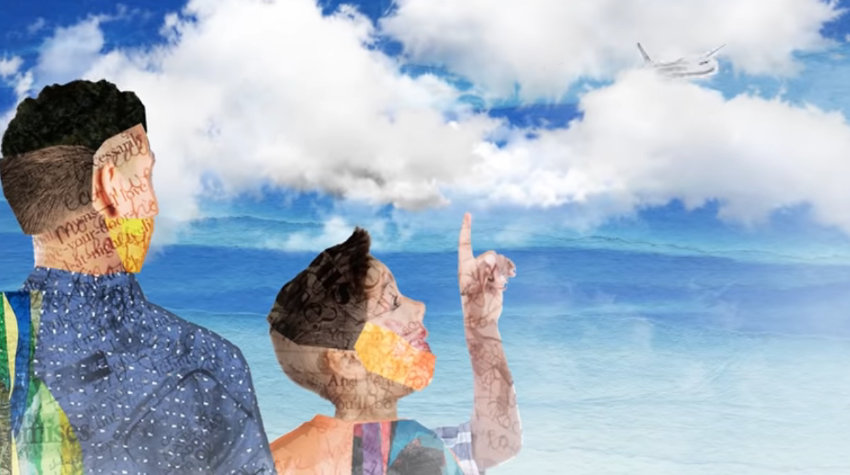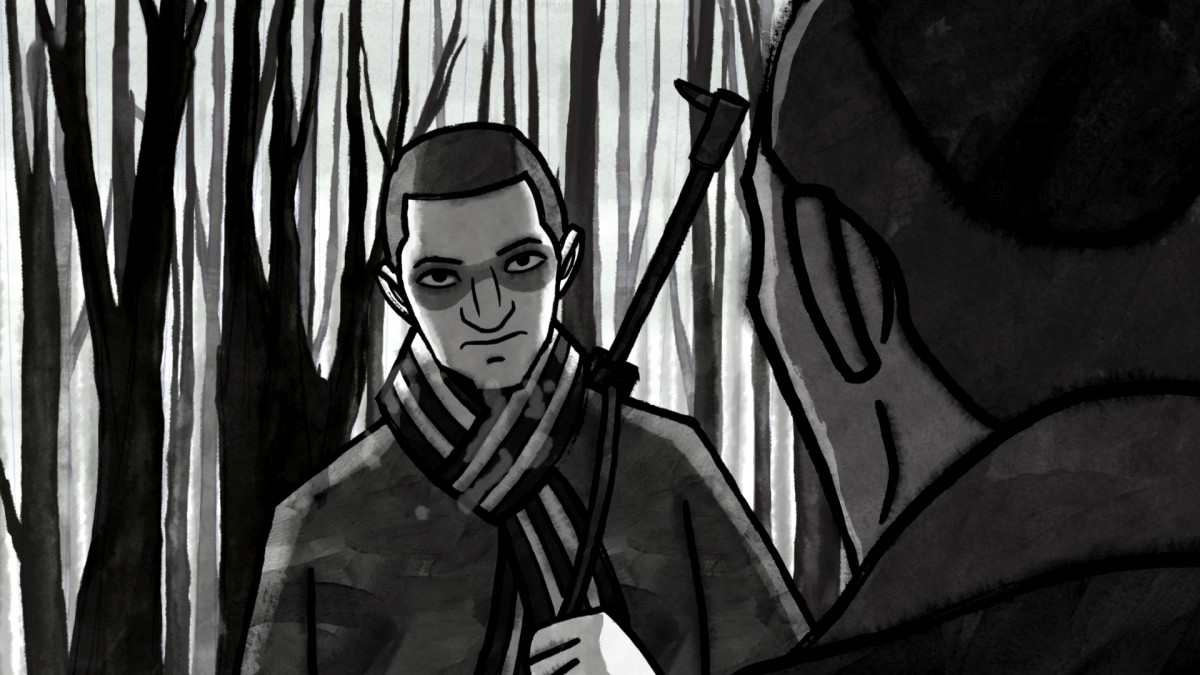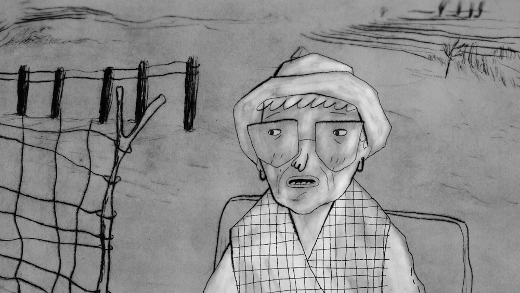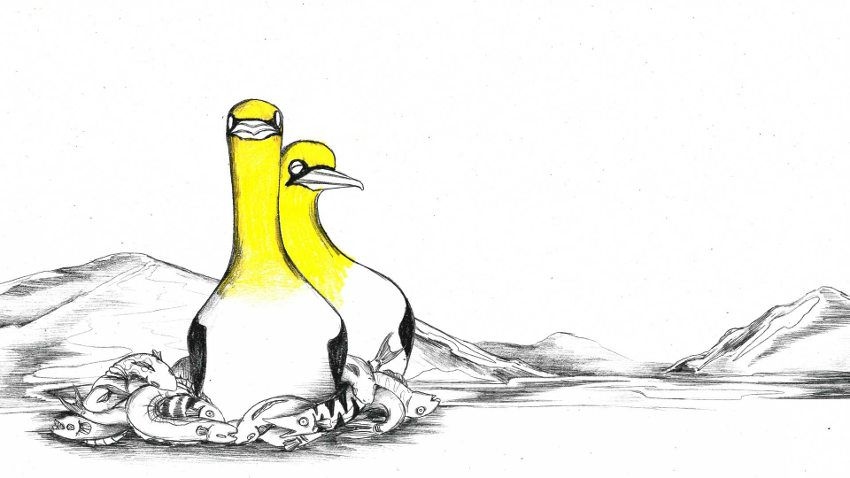Waking Sleeping Beauty
Don Hahn is one of the biggest Disney producers (Beauty and the Beast, Lion King), and now directs a different documentary. He brings into focus the unknown story and fights within Disney executives that brought the celebrated company into a halt -but also led to 90s rejuvenation.
Waking Sleeping Beauty is a new documentary about Disney's artistic resurrection during the 80s with films such as The Litte Mermaid, Lion King and Beauty and the Beast.
VK: what made you think doing the documentary in the first place? You didn't wake up one day and said, "Today I'm gonna make a docymentary about Disney".
Don Hahn: Actually, no. It was Peter Schneider, who was head of animation in Disney during that time, 80s and 90s. I had lost track of him, but one day we had a coffee, and out of the blue, he told me " You should tell the story, and make a documentary, not a book, about it". I thought he was insane. You only see this kind of thing in bonus dvd material or blu-rays extras. How could we ever do a full-scale project such as this without the cooperation of Jeffrey Katzenberg or Disney?
So we had breakfast with Dick Cook who was head of Disney studio at the time. We said to him, we feel it's important to tell the creative process of one of the most creative companies in the world. This process is sometimes messy, sometimes thrilling and joyful, sometimes sad and devastating. And all that started to sound like a movie that was worth making.
VK: In the press release notes you state that the situation was not like an artistic frenzy. Would you describe it rather as a diplomatic battle?
D.H. I think we were fortunate to have the collaboration with the Disney studio. We wouldn't have made it without them. We needed clips of the songs and movies. On the other hand, 20 years had passed and I it was enough time to with for everyone to calm down and look back with some sort of objectivity, and tell their stories. And everyone wanted to cooperate. We didn't have anyone turn us down, and tell their part of the story. So I always called the movie "10 blind men describing an elephant".
VK: So, you decided not to have an overarching conclusion.
D.H. No, it's the opposite. I wanted to have everyone tell their stories and make the audience reach to a conclusion. I didn't want to make a villain out of this guy, and a hero out of this guy, because the truth is that in this period of time there was no villain or hero, no black and white, just different shades of grey. And that is what I think makes the film very interesting. Because what a person at one point of the story appears very heroic can be very difficult to work with at another point. And that's part of the creative process I want to narrate.
VK: You were personally involved in this creative process in the 80s. Has your viewpoint changed after recording the interviews and getting this material? Do you feel different now about these issues that you felt back then?
D.H. With 20 years' distance, it's easier to look back. it was a very difficult and stressing time. We were trying to make a movie each year for Disney, something which hadn't been done before. Now it looks less stressful. But you can look back at the successes, and say yes it was difficult, but it was also joyful because of those successes. And the animation industry is blooming now because of that time. Disney had a monopoly in animation in the 70s or 80s. Not anymore.There are almost 20 movies, features every year from all studio.I think it's brilliant, it's a good thing.
VK:Did you start your career in Disney with The Little Mermaid or Who Framed Roger Rabbit?
D.H. It was before that, actually in 1976 with Pete's Dragon. I was production assistant in that movie.
{mosimage} VK:How did you feel when you got an Academy Award nomination for best pictureas a producer for Beauty and the Beast? That was unprecedented.
D.H. Amazing. It was very humbling actually, because you're accepting a nomination for 600 people. And its not my movie, it belongs to all of us. And animation is still more collaborative, much more than any other art form.
And it was also humbling, because people from the Academy -who came mostly from live-action films- would stop and stay that here's an animated film that can stand alone among live-action films. That was a big hurdle to get over. And now of course there's a category for animated films.
VK:There is a controversy about that. Do you think that the animation category was created to shut an animated film out of the main categories?
D.H. We always talked about that. The animators were saying "we want our own category, our own branch" in order to get recognised in the same way documentarians are). It has had the effect that, if you get nominated or win in the animated category, you do not get nominated in the best picture category. But this equally applies for documentaries and foreign films. E.g Hidden Dragon, Crouching Tiger should have win best picture nominations.
So, I agree with you, it has that effect, but that wasn't the reason it was hatched.
VK:: So, you are making in effect a documentary about animation now. How difficult it was for you to get objective? You were personally involved in this period.
D.H. We knew we were too close to it. I was very afraid of making a promotional piece, so we brought a writer early on. Patrick Pacheco, a journalist for New York Times. Patrick did a lot of interviews and helped in making an objective telling of the story, with all the hard parts also. Patrick cared less who is getting stabbed in the back, he just didn't care. He was interested in reporting what he thought the story was, and that helped me a lot making the movie.
And things changed as we went. I never began thinking that I would narrate the movie. Also, I didn't want to have modern interviews, and have us fondly reminiscing about those days. I wanted to use archival footage from the 90s, put you in the room I was in and tell you the story myself.
VK: The press release notes tell that your mum also helped in the making of the film.
D.H. She did! She passed away some years ago, but she saved in boxes that I had in my garage videotapes of things she taped off the TV. And some of the clips I could not find, expect for those boxes she had.
It is surprising how our history disappears, how quickly it happens. Because even videotaping from 20 years ago is oxidising, it is bad quality, it is hard to find and collect all those pieces.
VK: You are producing Tim Burton's Frankenweenie. What is this film?
D.H. It is stop-motion animation in the style of the Nightmare before Xmas. Puppets one frame at a time, just like Fantastic Mr Fox or Corpse Bride. Tim's directing it himself, which is unusual, but it's his movie. He made a black & white short Frankenweenie in 1982, and I went to him 3 years ago, and told him: "Why don't we expand this to an animated film?"
He was very open to the idea, and it's taken up 3 years to get it up and running. I am the executive producer, and Allison Abbate (who produced Fantastic Mr Fox) is producing it with me in London. We're starting production next month. Sets are buing built, and I'm going to visit the set.
VK: What do you thing the audience reaction to your documentary will be? Do you think they may love it for enjoyment or for the sake of eavesdropping into Disney's back rooms?
D.H. Both. I think we love reality shows right now in our culture, and this is a reality TV show for animation. It's like opening the door to a locker room and see what's going on inside a sports club, or the backstage of a Broadway musical. And, hopefullly what I want to do is humanise it and say, "These people are challenging, but they worked very hard and they failed a lot".
There are songs that are written and then cut out of the movie. Howard's struggling with the HIV virus and dying while writing most of the memorable songs of our time. The film does not demonize anybody. It actually makes heroes out of people who for every drawing they made, they threw 5 other drawings in the trash can. And usually you do not see that. For every success that you see there is a series of failure, and for every good song there's a song cut out of the movie, whether you're Elton John or not. That's why I wanted to make this movie, to show its struggle and its process - a process that made Disney great.
VK: What will be the future of the film? Will it be distributed?
D.H. It has been distributed. We opened up probably 3 months ago in Chicago, San Francisco and L.A. Now it's running in arthouses everywhere in the States, and the audience reaction is surprising. There are two groups of people that surpised me the most: one is college students. They grew up with those movies, they grew up singings songs and watching videoclips of the Little Mermaid 200 times.
The other group was corporations. We had a lot of people from Google and showing it at NASA Space Administration Office. They're interested in a business story about the success or the failure. That was surprising. I expected animation fans to like it, but this was unexpected, and I love that.
It is an interesting case study, almost. What went wrong, what went right, how we can avoid the mistakes. It also works very well in festivals: we've shown it to full theaters, for it is very unusual to see this kind of look behind the scenes.
ZF: Any new documentary in the works?
VK:(Laughs) I'll probably need another coffee with someone.
FILM REVIEW
Who wouldn't want to see an unknown comeback story, coming from an industry specialized in successes?
Don Han's documentary, Waking Sleeping Beauty, has a peculiarity: it comes from a Disney insider (Don Hahn was producer in Beauty and the Beast and the Lion King), and tells a story that so far only connoisseurs knew.
By the mid-80s, Disney flounders in failures, till the near-death blow of Stephen Spielberg and his American Tale, who conquered the US Box Office. The company reacts and hires non-animation experts as its executives (Jeffrey Katzenberg, Michael Eisner). They cooperate with Roy Disney (nephew of Walt) and bring back the sweet smell of success.
But serious battles between old and young players, and even among the latter, overshadow these successes. Waking Sleeping Beauty narrates in brisk pace (especially after its first 20 minutes) the Disney sanctum, in which everything works by the clock -on t the surface. It is based on the main players' interviews, that sometimes contradict each other. The whole film is archival footage, with a director voiceover, whereas participants never show their current face. This works as an 80s parade with star appearances.
What stays is not the rather complicated details nor the conflict between creativity and the need for economic superiority. Waking Sleeping Beauty denotes a conflict of egos, that may happen in every family. It has not been told so far, it is sometimes inventive, and sometimes touching. Embellished with film clips (from The Little Mermaid to Lion King), Waking Sleeping Beauty brings some light to what lies hidden behind press conferences, without deconstructing its main actors.
CREDITS:
Waking Sleeping Beauty, 2010
Direction: Don Hahn
Script: Patrick Pacheco
Appearι: Roy Disney, Michael Eisner, Jeffrey Katzenberg, John Lasseter, Tim Burton, Stephen Spielberg
Editing: John Damien Ryan
Duration: 86'








